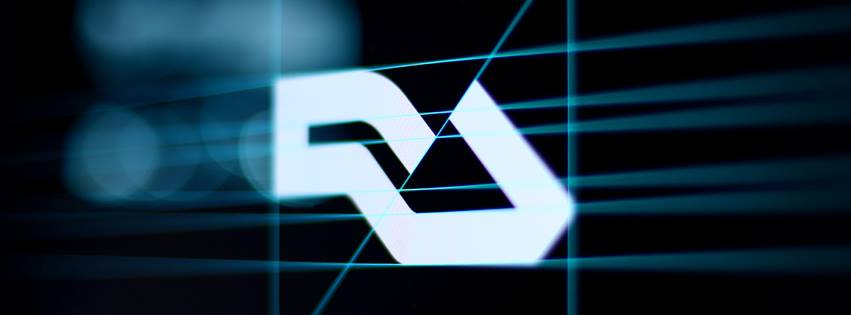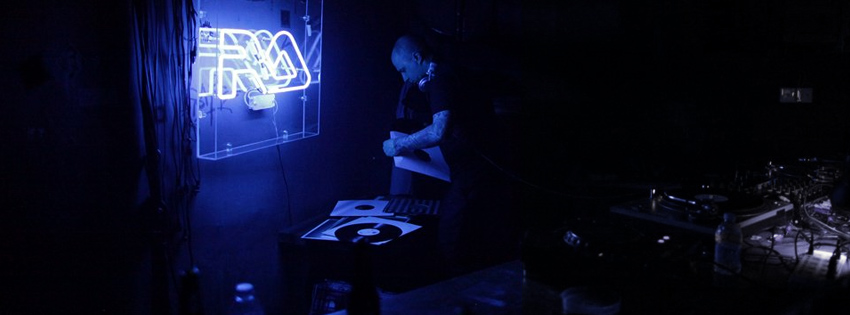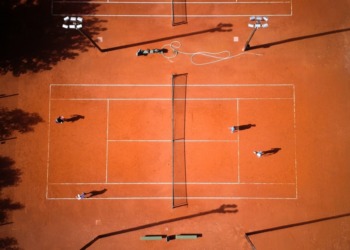In 2001, Nick Sabine and Paul Clement teamed up to launch Resident Advisor which originally focused on the local electronic music scene in Sydney. But within 2 years the website had grown to cover the scene globally, a few years later moved its HQ to London and now also has offices in Berlin, Ibiza and Tokyo. As well as editorial content, the site has also become a must for listing club nights, with over half a million events having now been listed in over 150 countries. I was curious to learn more about how a passion was transformed into a great business… Here’s my chat with Nick Sabine, co-Founder of Resident Advisor.
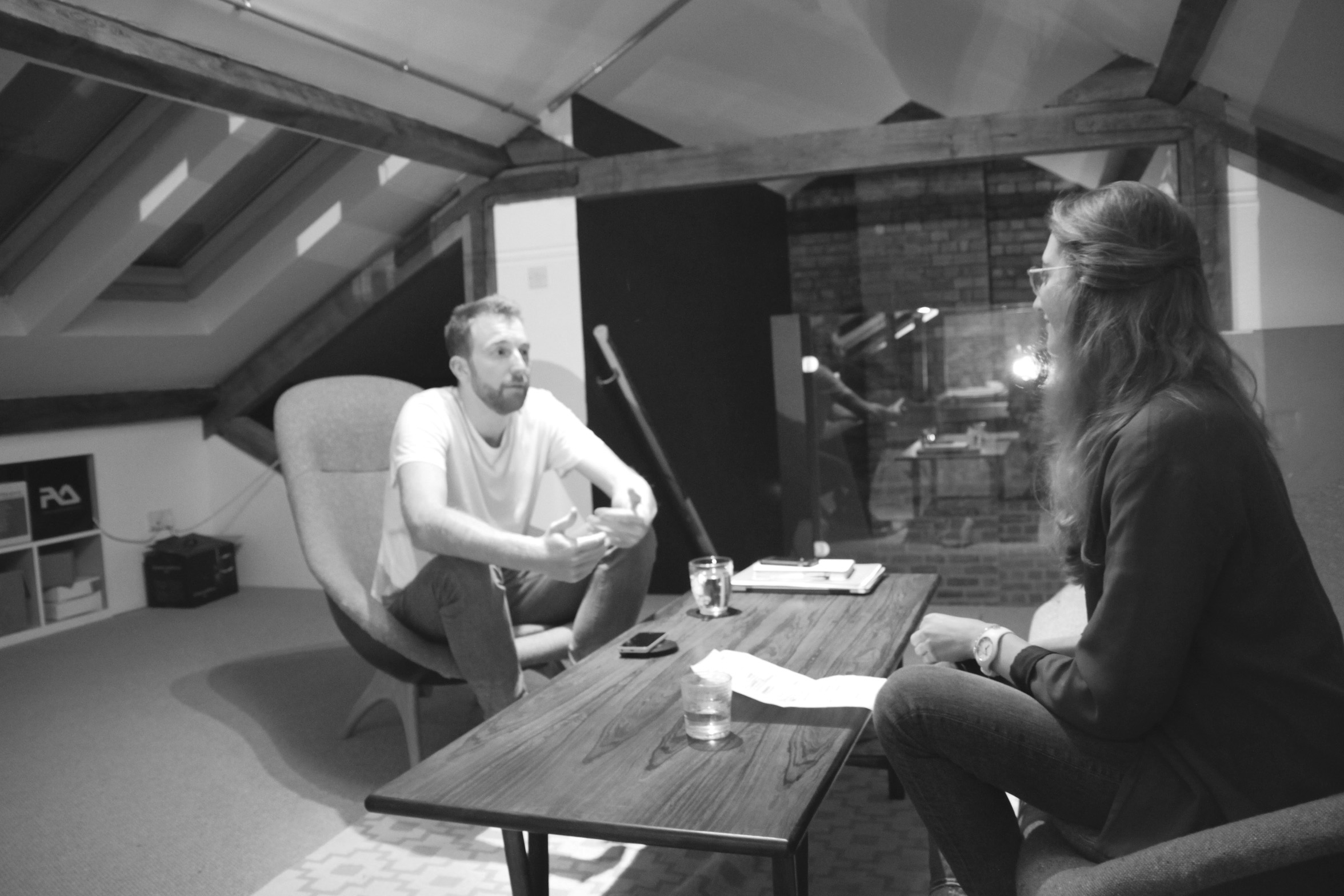 In the photo: Nick Sabine with Anne-Hélène d’Arenberg
In the photo: Nick Sabine with Anne-Hélène d’Arenberg
Q: How did this fantastic adventure start for you?
Paul Clement and I just wanted a place where we could write about the music we liked, it was never meant to become the business it is today. From the very beginning, in 2001, it was more of what you’d consider a website nowadays than a blog. As the latter didn’t really exist at the time, you were either a website or nothing at all. Paul designed a page where we’d post electronic music news, artist profiles and reviews. We started by covering Sydney, the city we lived in at the time and knew best, but pretty quickly we started having international aspirations as regional boundaries were starting to become irrelevant due to the intrinsic global nature of the internet.
Q: How did you discover electronic music and how did you meet Paul?
My brother, who is 8 years older than I am, lived in the UK and was a very successful touring dj at the time. Whenever he’d fly over to perform in Sydney I’d attend his shows at quite a young age. I was about 15 years old when I first started to consume electronic music. One day, my best friend and Paul’s best friend met randomly in a club and introduced us to one another during a subsequent outing. And this is where our journey began. We started the company with 400 AUD each and that’s all we have ever put in. Because it was never meant to be “a thing” – I was working for an ad agency, Paul was working for a design agency – we were working on the website on the side. We’d sell banner ads and earn a little money from it; we didn’t need a real income since we had our respective jobs. Both rapidly became full-time occupations: we’d wake up in the morning to work on our website, then we’d go to our respective jobs, then we’d work over the lunch break on the website again and so on until I’d get to bed at around 2am and end up disappointing my girlfriend at the time- the amount of work was ridiculous. After a couple of years, once I’d settled in London in 2004, we realised some help with the content was needed and we hired 2 full-time employees, an editor and an assistant editor, before we’d even taken on RA full-time ourselves. We’d meet up with our employees over lunch time to catch up on all of our tasks. Paul began working full-time after 4 years and I after 4 and a half.
………………………………………………………………………………………………………….. Related articles : OCEANA CEO – ANDY SHARPLESS INTERVIEW article by Anne-Hélène d’Arenberg VOICE POLLS – FELIX WINCKLER INTERVIEW article by Impakter…………………………………………………………………………………………………………..
Q: When did you launch the ticketing business? It certainly represents a big chunk of revenue for you guys…
It certainly does help… In 2006, I wanted to build a ticketing system to go with our existing event listing system. We had so many visitors on the site who were looking for events that it made a lot of sense to offer them the opportunity to easily get a hold of the tickets to attend the shows they’d be interested in.
Q: What were the main hurdles you faced from being a startup company to becoming the established company you are now?
The whole enterprise is a bit of a miracle to be honest, coming down to a lot of hard work and a bit of luck. I was telling someone the other day that we’re now one of the main media channels in the industry, an influential publication, and it’s a very luxurious position to be in, but if someone would’ve told me that for 7 or 8 years I’d have to have 2 full-time jobs and work from 6 am to 2am every day, I honestly don’t know if I would’ve signed up for it. It kind of just happened naturally; the thing we were most passionate about was electronic music so we started this thing that was about music we loved, we wanted to keep it updated, we realised that to keep it up to date we needed to write content that people would be excited about. We’ve always had an organic growth plan and only hired people that we could afford to hire. We’ve never borrowed any money, functioning like a closely-held family business. We obviously faced many challenges along the way but somehow we’ve always managed to grow. In the past 3 years we’ve grown 37% consistently every year in terms of audience, like clockwork. Demand has also grown massively: 10 years ago turntables overtook guitars in music store sales and that’s obviously had a knock-on effect. Today, everyone’s a dj, more people are organising parties, there are more venues… Along the way we constantly stuck to our premise of writing about what we love and just hope other people will be interested as well.
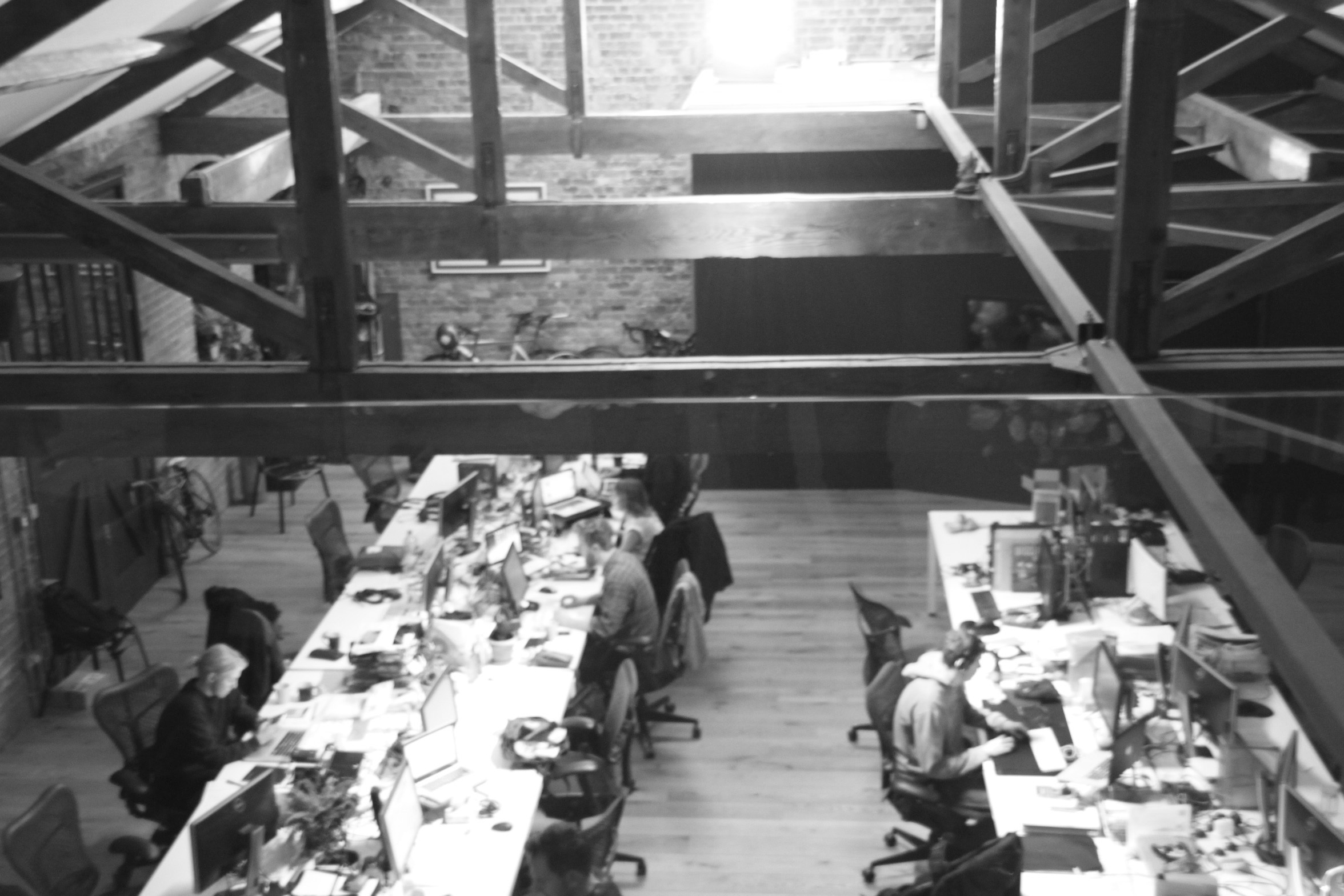 In the photo: The Resident Advisor office in east London.
In the photo: The Resident Advisor office in east London.
Q: How is RA structured today?
We’re 34 full-time employees with offices in London, Berlin and Tokyo, and we’re about to open up in Los Angeles and New York. There are certain pillars that support today’s business: first, there’s the online magazine element. We have an editorial team of 9 people; it’s our biggest team within the company and it’s at the heart of everything we do. It contains the main content: news, reviews, features, etc. Then, there are the events and all the services that support the industry: allowing venues to list the events, sell the tickets, allowing artists to manage their profiles and their pages for them to have a home on the internet that showcases all of their work (where they have played in the past, the labels that they work with, etc.). Every single event that gets entered into the system get manually approved; we get hundreds of thousands of events submitted a year so you can imagine it’s quite a big job. It is really important to stick to our field of expertise and the genre. Electronic music is also getting a lot broader so we can help people discover more interesting stuff that 4 or 5 years ago would’ve been out of place in electronic music. Finally, we have a social element that is tied into it all.
Q: I discovered the website when I came to London; it seems that RA is an essential platform to learn about great events efficiently. What do you think is missing in other countries, where you’re less established, to make yourselves known?
Certain cities are more mature in terms of their RA development; London, Amsterdam, New York, Sydney are very established markets for us. New York is quite similar to London: if you want to go out to an event that features electronic music, you’re probably going to look on RA, buy your ticket from RA and discover more about the artists playing through RA. In other places, language is a barrier as the website is in English. We have a Japanese version of the site as well – but that’s probably not going to help much in other countries… Electronic music is extremely popular in the UK and I think it’s partly because we’re servicing and supporting that community. So generally, we’re very central to people’s experience in music in the UK. There are also many more venues, many more parties in London, with over 500 attendees featuring established artists.
Q: What is it you like about London that makes it such a great city to live in?
I think London is on fire at the moment. As someone fortunate enough to travel quite a lot, I always get excited when I’m coming back to London. Culturally, I find London so diverse right now, whether it’s music, art, film or fashion, there’s a thriving cultural scene that you can really discover and embrace. The food has changed so much as well, I’m not eating better anywhere else than I am here. This city has an incredible energy. I’m a big city person and London has all a big city has to offer. Despite opening two new offices in the United States, I love London too much to move abroad – I’ll just have to spend much more time in airplanes.
Q: What are your 2015’s top 5 festivals to go to and artists to follow?
Top 5 festivals:
1: Burning Man to which I’ve been many times; 2: The Garden Festival in Croatia; 3: Sonar; 4: Unsound in Poland, which is a very forward thinking festival in terms of new music and interesting art collaborations; 5: Glastonbury, if you manage to get tickets.
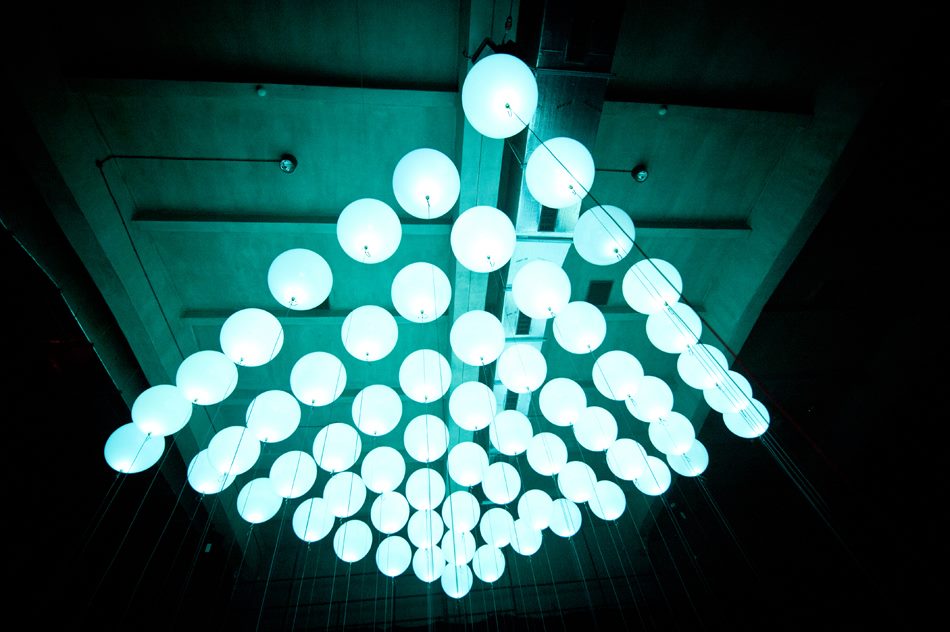 In the photo: Installation by Joanna ‘frota’ Kurkowska at the Unsound Festival in Krakow, Poland.
In the photo: Installation by Joanna ‘frota’ Kurkowska at the Unsound Festival in Krakow, Poland.
Top 5 artists:
1: SOPHIE is really interesting in the PC Music revolution and worth checking out; 2: Kaytranada is another; 3: a guy from Berlin called Rødhåd who’s a really phenomenal artist; 4: the Innervisions artists; 5: DJ Harvey is an elder statesman who is pretty broad musically. It’s always fascinating to hear him play, see him weave through different genres and look which direction he goes into.
Q: Is there an artist you haven’t met yet but would love to meet?
Really I would’ve loved to meet Michael Jackson, but having a crazy dinner with Prince would definitely be very fun.
Editor’s note: To read about RA’s relationship with competitors, technology and fundraising, as well as receive some work tips from co-Founder Nick Sabine, please read PART 2 of Anne-Helene’s interview. See you in a week.
A big thank you goes to our friends Angie and Katie from The Rest is Noise for all the help.


